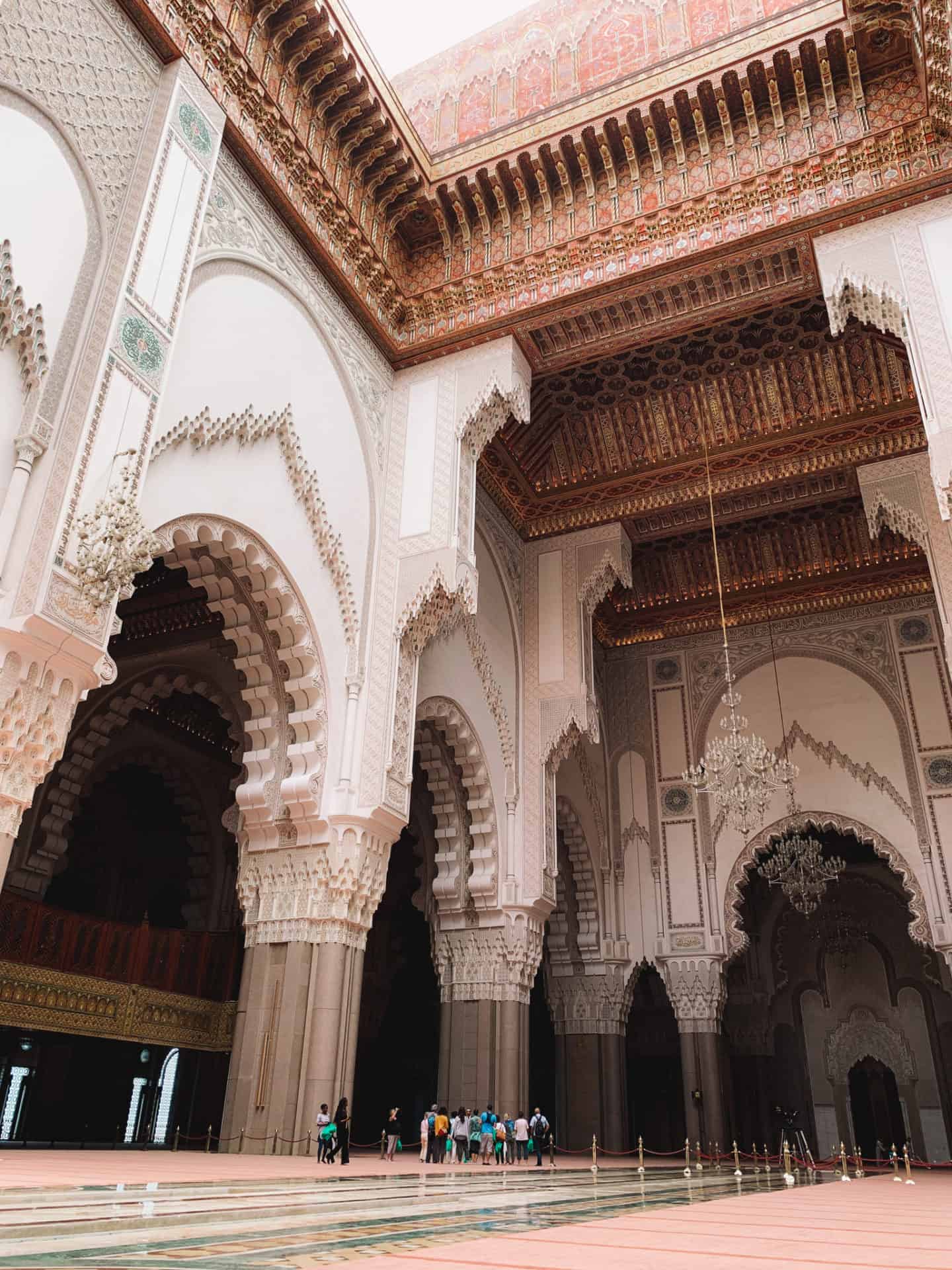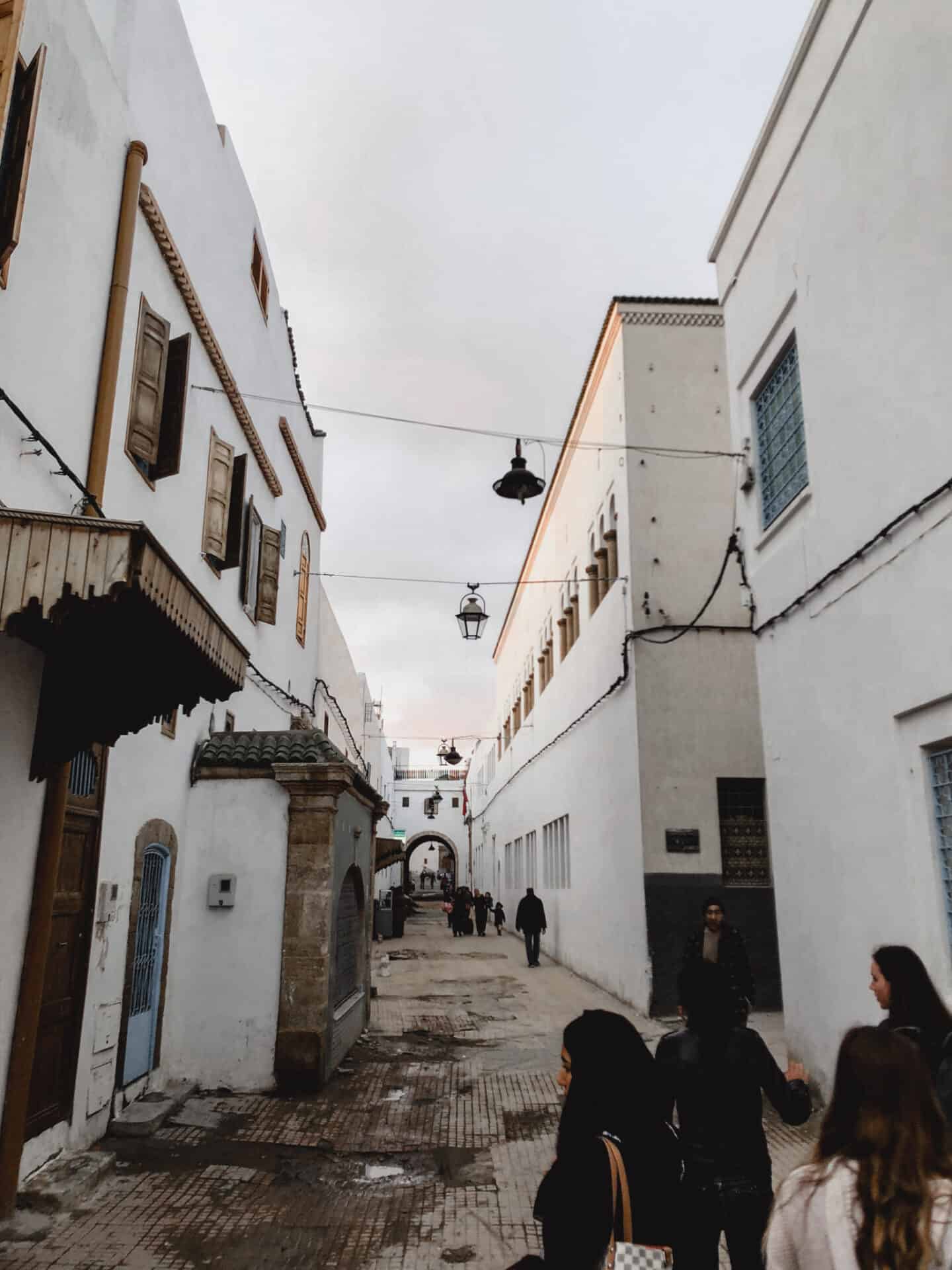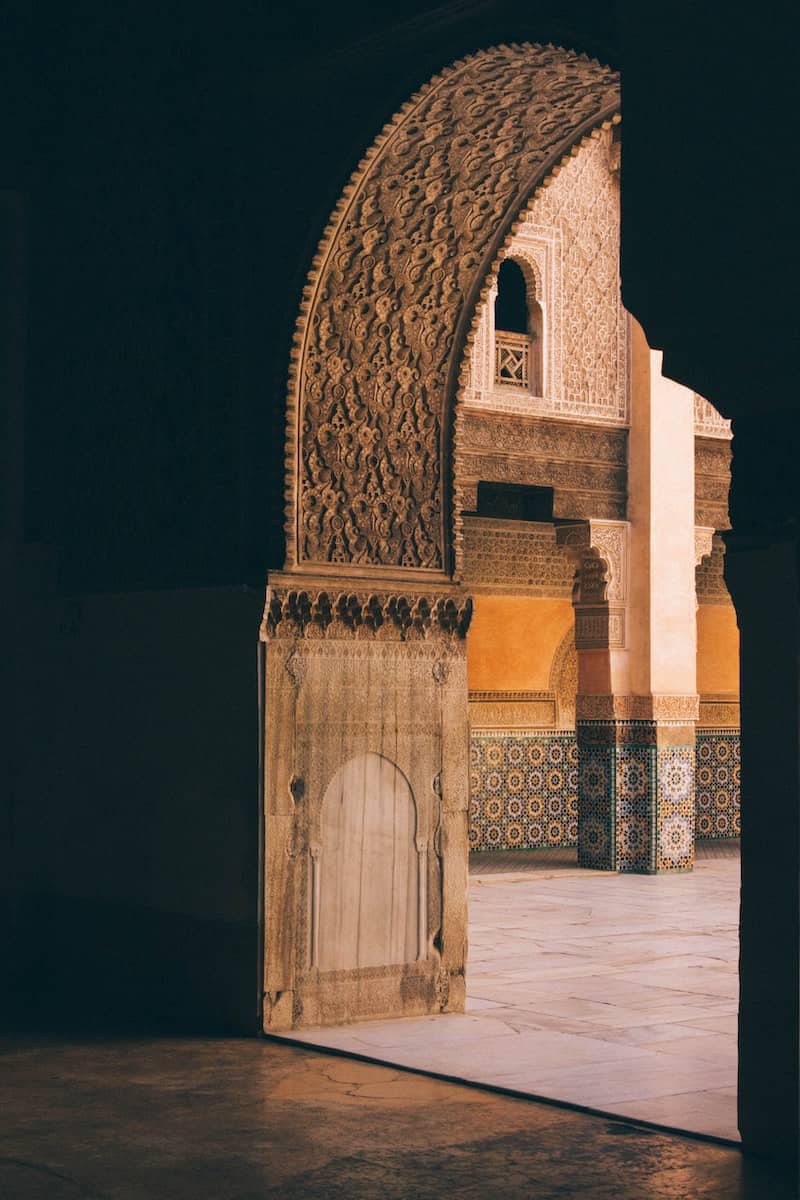Morocco is one of the world’s fastest-growing tourist destinations, with visitors flocking here from all over the world. Morocco is filled with beautiful places that deserve a visit, and my list of the best cities to visit in Morocco only scratches the surface. One of the most iconic things to do while visiting Morocco is to go shopping in its souks, or markets. In Marrakech, specifically, visitors dream of wandering through the tight streets off of the Djemaa el Fna and buying wares such as rugs, perfumes, clothing, and more.
As someone who has spent significant time traveling around the country, I can attest to how fun it is to shop in markets in Morocco. I even have some clothes, a leather bag, and a scarf to show for it! With that being said, it is absolutely vital that you learn how to haggle before you try to buy anything in a Moroccan market.
I was told in Rabat one time that vendors often charge tourists up to triple what they charge locals, simply because they know that foreigners are likely to pay up.
Haggling comes easy to some, but not to all. This post is going to highlight my top five tips for haggling in Morocco, all of which I have successfully used in small towns and major cities all around the country.
5. Pay in Cash
This tip is redundant half the time, as vendors in many markets don’t even accept credit cards or other forms of digital payment. In major cities like Marrakech and Casablanca, you’ll likely see credit card terminals, but this is not the case everywhere. Still, regardless of what they accept, they will always prefer cash. Cash is direct, cash comes with no fees, and cash may or may not get reported to officials for tax purposes. Vendors would prefer cash over credit in just about any transaction, and they are likely to be more willing to negotiate if they know that you’re offering instant payment without the need for a middle man.
Vendors are likely to be more willing to negotiate if they know that you’re offering instant payment.
Why is this, you might ask? Why do Moroccan vendors prefer cash over credit cards? It’s actually very simple. While having wads of cash on hand might sound unsafe, they’d rather have that than pay the 3-4% fees that Mastercard and Visa charge them on each transaction. Often if you’re willing to pay in cash, the vendor will be willing to reduce the price to at least match what their share would’ve been after the credit card fees.
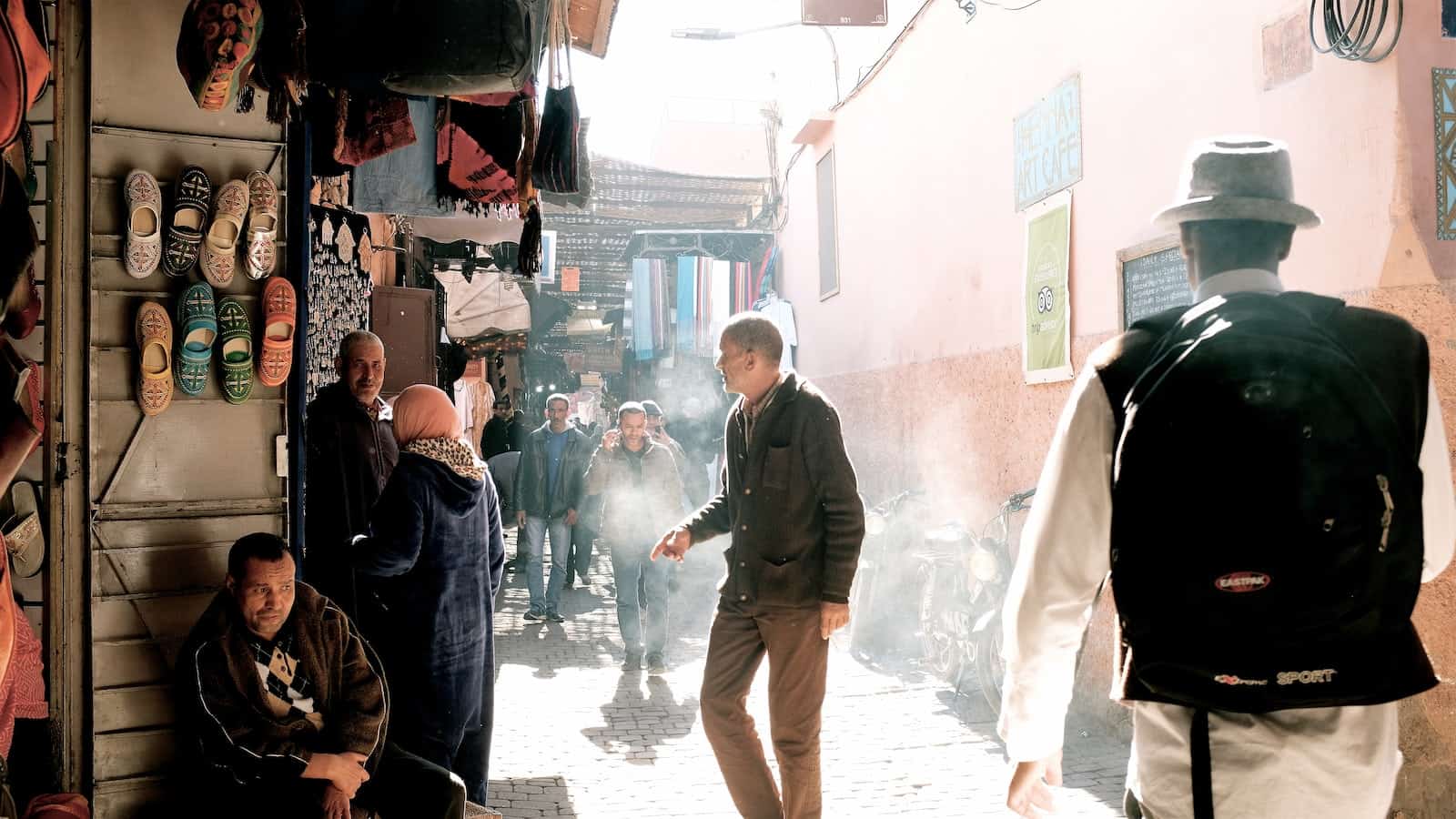
4. Only Show the Vendor the Cash You Are Willing to Spend
This tip is the ace that I keep in my pocket every time I haggle in Morocco. I ask around to gauge what the prices should be for a specific item, and I decide on my own maximum price that I am willing to pay. That price is the amount of money I will carry with me when I approach the vendor. More often than not, a vendor just wants to make a sale. While they like wider profit margins, they’re happy to make a profit at all on an item (which is normally very easy for them to do, as the costs of production tend to be very low).
When negotiating with the vendor, I can much more easily get them to agree on my target price if they think that that is all the cash that I have.
Again, they usually don’t want your credit cards, and taking 50 dirham in cash is often preferable to 75 dirham on a credit card. If I know that the maximum I want to pay for a scarf is 50 dirham, I will take all of the rest of the cash out of my wallet, hide it somewhere on my body, and happily show the vendor my open wallet that only contains 50 dirham. While they usually know you’re lying, they don’t usually have the energy to push back against this tactic.
To be clear, this tactic is to be used after other negotiation methods fail. This tactic should be used when the vendor doesn’t seem to be lowering the price, and his sticking point is slightly above what your maximum price was.
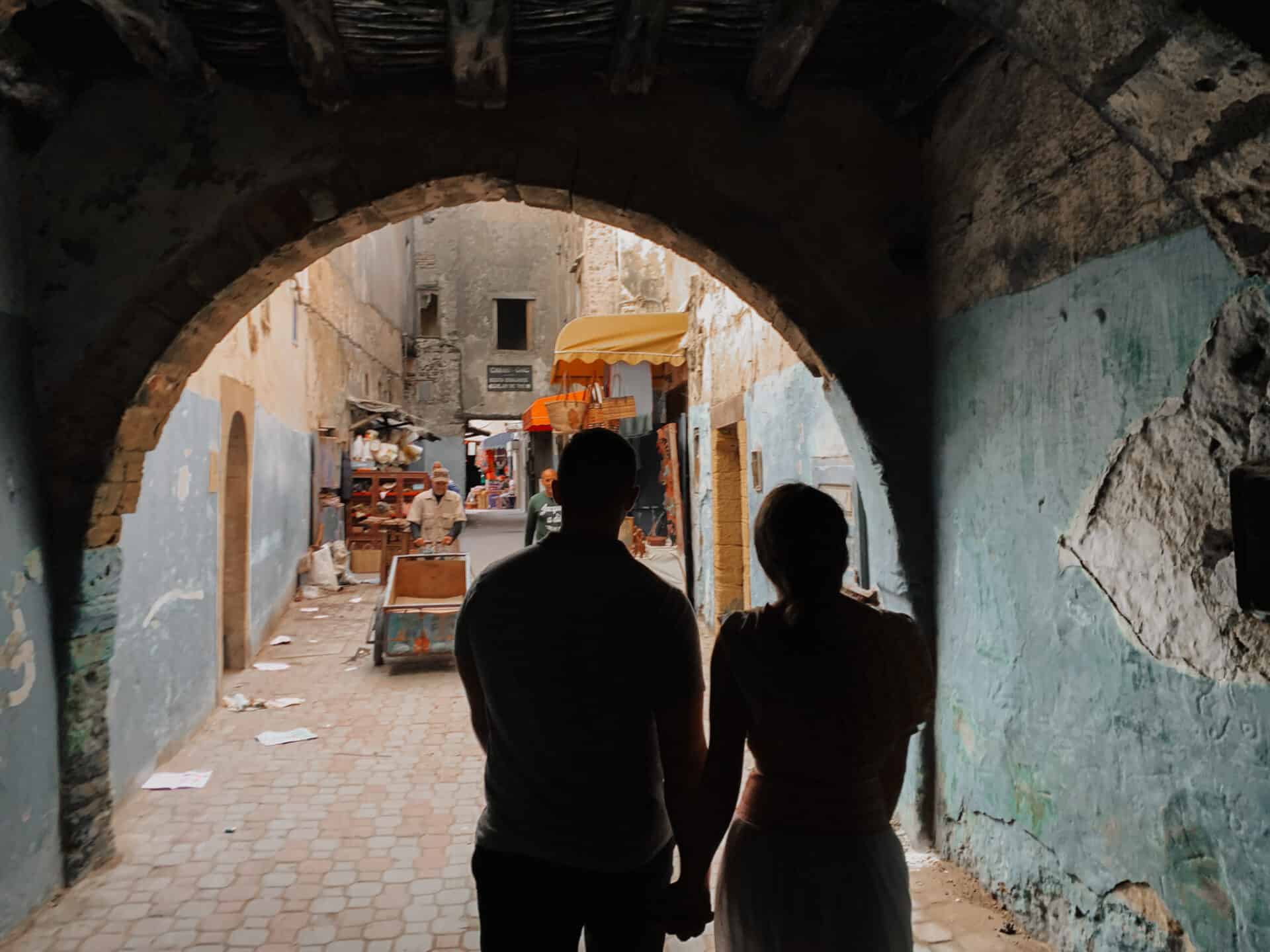
3. Group Items Together
Group discount, anybody? Vendors in Morocco are much more likely to give you a steep discount if you are willing to buy more than one item from them. Vendors are responsible for all of the wares in their shops, meaning that if they can sell 5 items together and make an overall 5% profit, they will be just as happy as if they sold several individual items at a higher profit margin. Again, as long as they are profiting on the items, they are willing to sell them.
If you are interested in just one item, the vendor may try to juice all that they can out of you, because they don’t think you’re going to buy anything else from them. If you show interest in packaging several items together, the vendor knows that the sale is going to make them more money overall, and they will likely be more willing to negotiate. In this way, you can negotiate an overall price for the items and not get caught on each individual one. You leave with more goods to take home, the vendor leaves with more profit than they would have made from just selling one item, and both sides are happy!
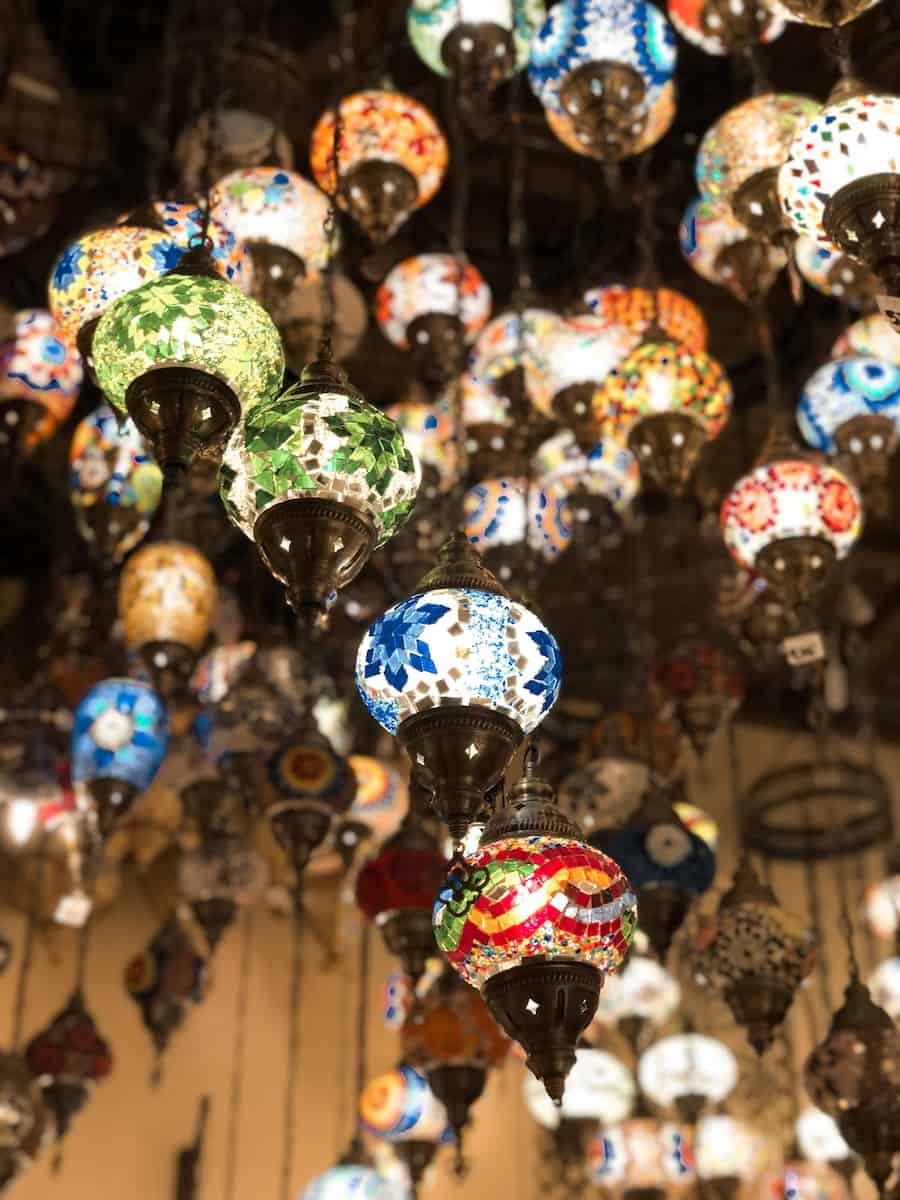
2. Show Interest in Other Items
This is a classic used car dealership trick, and it works just as well in a Moroccan market. The first item that you inquire about shouldn’t be the item that you actually want to buy. The first item you ask about should be something that is either way out of your price range or is entirely unrelated to what you want to buy. You should talk to the vendor about it for a while, haggle on the price, and ultimately decide that the item is not for you.
A sneaky but very effective trick.
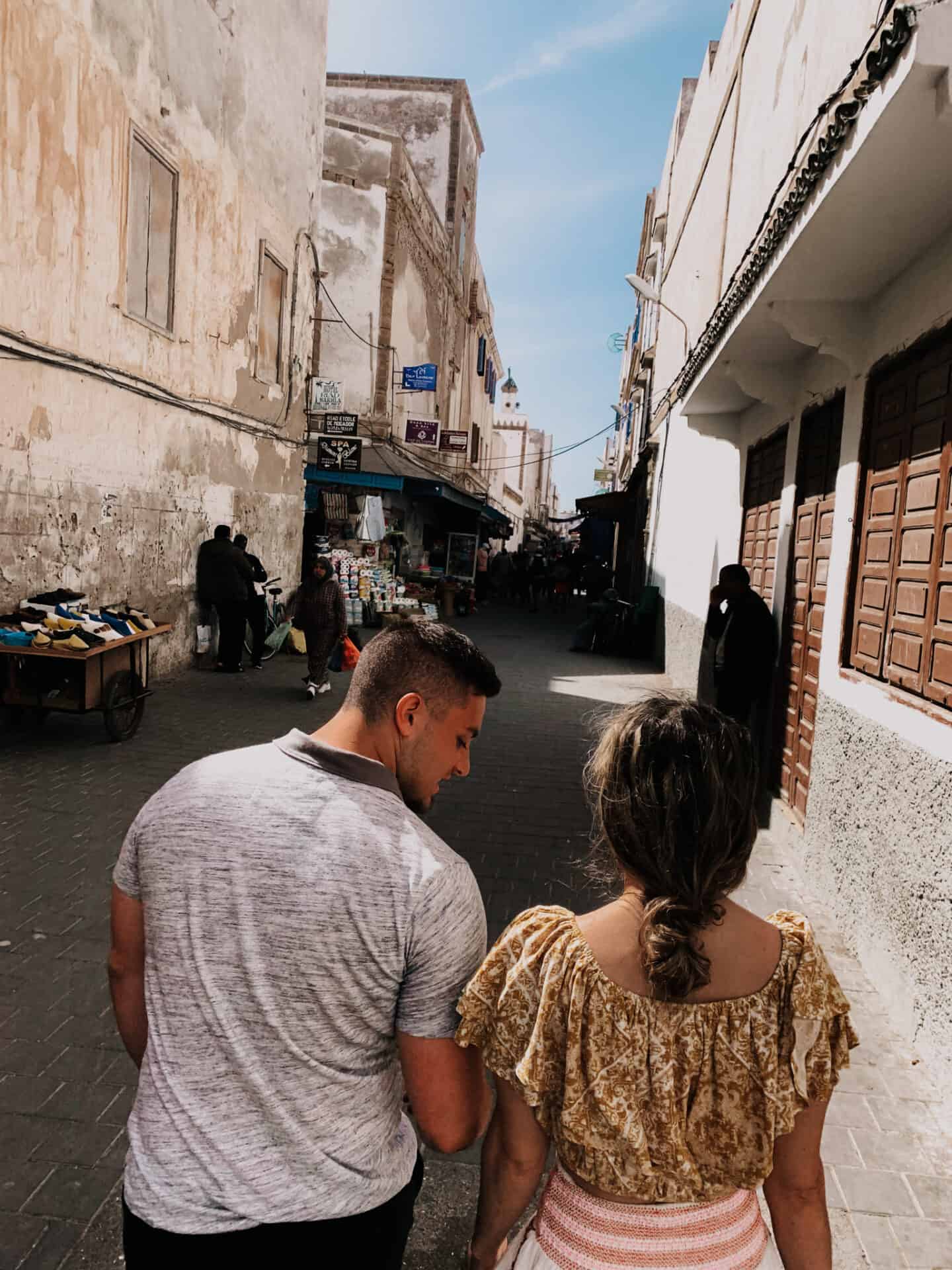
As you walk away, the vendor will likely start slashing the price on the item you’ve been discussing. If you slowly reengage them, say you don’t think a deal is going to work out on the item, and point to another item (the one you actually want) and mention that you’d be willing to take it for their lowest possible price, they will likely cut you a great deal. After all, they probably feel like if they don’t make a sale, they’ve wasted precious time negotiating with you. The price they offer you will likely still be higher than the lowest price they’d sell it to you for, but it is a great way to start negotiations off in your favor. From this lowest price, you can counteroffer even lower.
1. Practice Negotiating with Other Vendors
My top tip for haggling in Morocco is a culmination of the rest of the tips in this post. Practicing on other vendors both warms you up and sharpens your skills for the actual negotiation with the vendor from whom you want to buy the item. Vendors usually sell very similar wares, and there is a good chance that you’ll find several vendors selling the exact item that you want. Negotiating with several of them helps you to understand how cheaply you can actually buy the item for, and you can enter the conversation with the final vendor with a clearer image of what to expect.
How did we learn this trick? Well, we got bamboozled- big time.
This tip requires some context. On my second trip to Morocco, I was with my wife (then fiancée) and a couple of her relatives. We saw some interesting wooden toys that we thought would be really nice to bring home for her brothers. The first vendor we talked to at the entrance of the market gave us a heartfelt story about how hard they are to make, how much they mean to him, how he is the only one that makes them, etc. We thought they were really special, and they seemed to be really unique. He offered us an astronomically high price, and we ultimately decided to walk away.
Three stalls later, another guy was selling the same exact things.
They were made in China.
Moral of the story? Don’t let the vendors pull on your heartstrings, and never buy an item from the first vendor that you talk to. Walk around the market, talk to several vendors, practice lowering the price, and then when you feel like you have a good idea of what is going on and what prices to expect, start haggling for real.
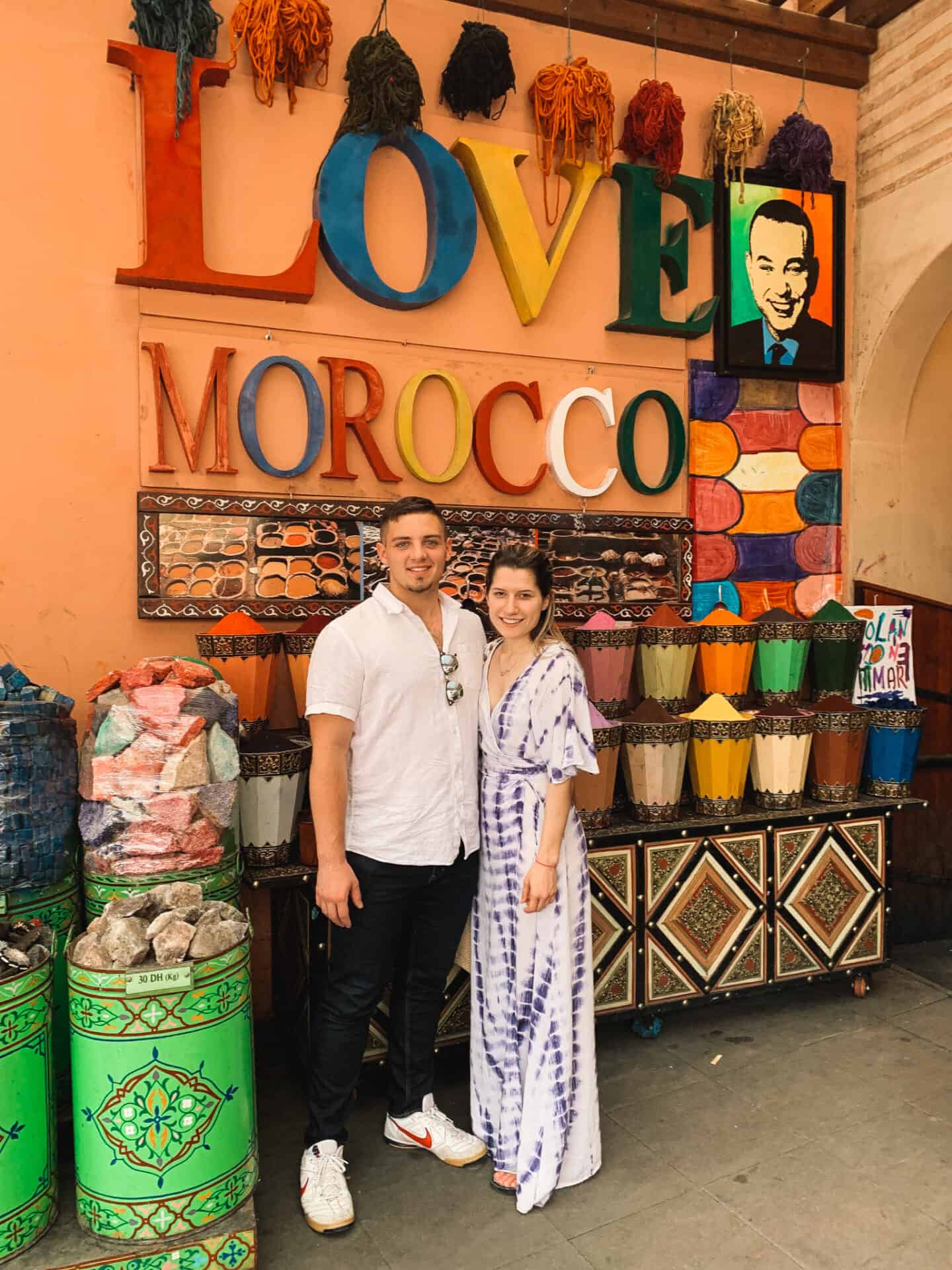
Thanks for reading my post on my top 5 tips for haggling in Morocco. Hopefully after reading this post you feel ready to haggle in the markets of Marrakech, Fes, and Rabat! If you have any questions about visiting Morocco at all, don’t hesitate to reach out – we’ve got you covered. Also, be sure to check out our other Morocco blog posts before you travel!
